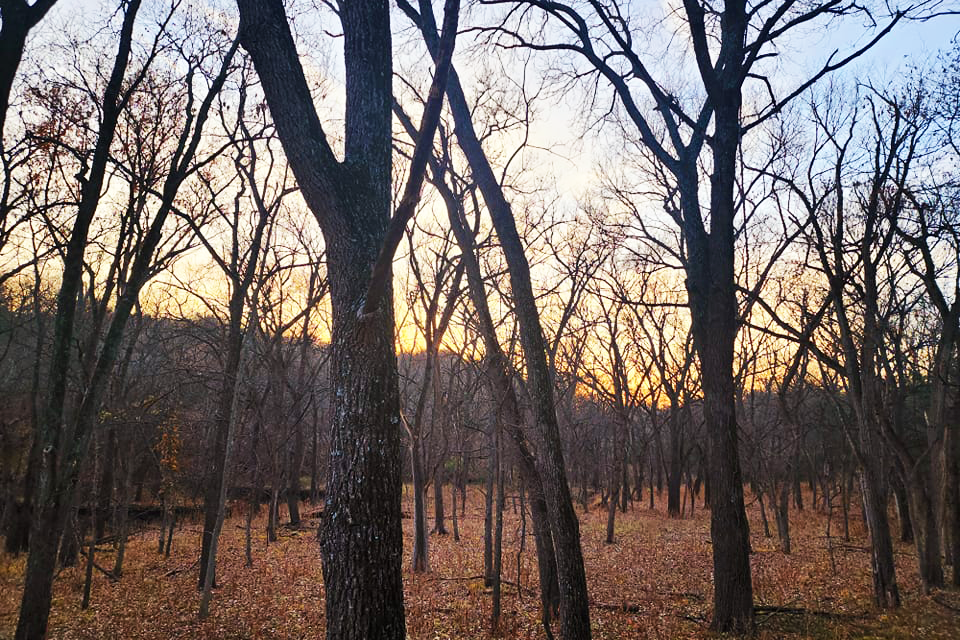
By Greg Wagner
I treasure my time spent alone in nature or in a rural setting, especially this time of year in Nebraska.
If I don’t get some alone time in the great outdoors, I end up getting a little restless, grumpy and cabin fever-like (just ask my wife, Polly).
Alone time is essential with the hustle and bustle of the season and all that is happening in this world.
Sure, it is safer and more fun to share your outdoor adventures with others in your household or “bubble,” but going solo isn’t all bad either. It allows you to recharge yourself without interference.
If you, like me, enjoy periodically venturing outdoors by yourself when the winter weather cooperates, you still need to take the necessary precautions.
That means don’t leave home without an itinerary, or a plan to include departure and return times, travel route, exact destination, etc. Put your itinerary in writing and leave a copy of it with someone at home or someone you know and trust.
Assemble a survival kit. It doesn’t have to be elaborate. Stick to the basics — ad hoc shelter, warmth, communication, navigation and sustenance. As a longtime outdoorsman, here are the essential items that I carry in my backpack survival kit (just in case of emergency): A fully-charged Android or iPhone, knife, new butane lighter, compass, lightweight space blanket or trash bag, electrical or duct tape, hand warmers, extra clothing (blaze orange), few high-energy snacks, bottle of water and a small, compact first-aid kit.
If I am ice fishing or waterfowl hunting, I will always pack an additional set of warm clothing in a dry bag in the event I get wet.
When asked about surviving alone in the outdoors, my son-in-law, Tyler Nichols, former paratrooper in the U.S. Army’s 82nd Airborne Division, commented, “Regardless of how prepared you may be, in army survival training, you are taught to use natural objects around you for different needs in a survival situation. An example is using a rock for a hammer. No matter how complete a survival kit you have with you is, it will run out or wear out after a while. Your creativity must take over when your kit wears out.”
I also asked Sam Larson of Adams, NE, one of the world’s foremost wilderness survival and bushcraft skills experts and winner of the HISTORY Channel’s popular survival series ALONE Season #5 in Mongolia, about tips he would he would offer to outdoor enthusiasts planning to go-it alone this time of year regarding dos, don’ts, survival and mental outlook.
Here’s what he had to say:
“It sounds boring, but communication is key. Let someone know exactly where you’re going every time you leave, the route you plan to take and when you are due back. Dressing in layers is extremely important and covering exposed skin, as is carrying a small first aid kit, and a form of supplemental warmth, like a blanket. Every first aid kit should have a tourniquet and Israeli bandage. Don’t get dehydrated, don’t fall in cold water, don’t get shot, drive safely and you probably won’t die.”
Larson reminded me of a Norwegian saying: “Det finnes ikke dårlig vær, bare dårlige klær,” or “There’s no bad weather, only bad clothing.” Translation, make certain you wear the proper clothing for your winter outing.
It is important to keep your wits about you, too. “Be constantly alert and vigilante. Know what’s happening around you.” said Larson. “Focus on yourself. Just remember the better your internal dialogue, the better you’ll do on your own.”
So then, why go outdoors having no one else with you? Surveys show that the majority of Americans believe it’s important to have times when they are completely isolated and away from anyone else. In fact, these same surveys also indicate that people have just as good of a time engaging in outdoor activities alone as they do when they’re with others.
From my perspective, this inclination for periodic solitude outdoors allows the body and, perhaps more importantly, the mind, space and time to just be in the moment, experiencing it with a person’s full attention and focus. In my case, it has been enjoying the peace and quiet of the rural southeast Nebraska countryside while hunting various game species.
The Android is now turned off and put in my coat pocket.
I hone in on my senses and what they perceive.
I feel the snow cover comforting me in my sitting position.
I sniff the freshness and the dampness of the fog and the forest air as it envelopes me.
I am by myself, truly alone.
I notice the things around me, the little things.
I notice the glistening of a frosty eastern red cedar branch.
I notice light snow flakes on the bark of a fallen cottonwood tree.
I notice the nasal, one-syllable honks of snow geese heard flying overhead.
I notice northern flickers perched on a nearby dead tree.
My cares begin to fade.
My thoughts find themselves drifting from the mundane routine of everyday life.
Then comes silence, a sound in itself.
I take a deep, cleansing breath and tell myself it is a great moment to be alive.
Spending time outside unaccompanied affords an opportunity to really get to know your inner self, finding peace, and restoring and refreshing your body, mind, and soul, while experiencing the beauty and solace of nature or a rural landscape.
Get ready and give it a try! Chances are, you’ll go home with a clearer head, a more fulfilling appreciation of our natural world, and renewed outlook on life.
